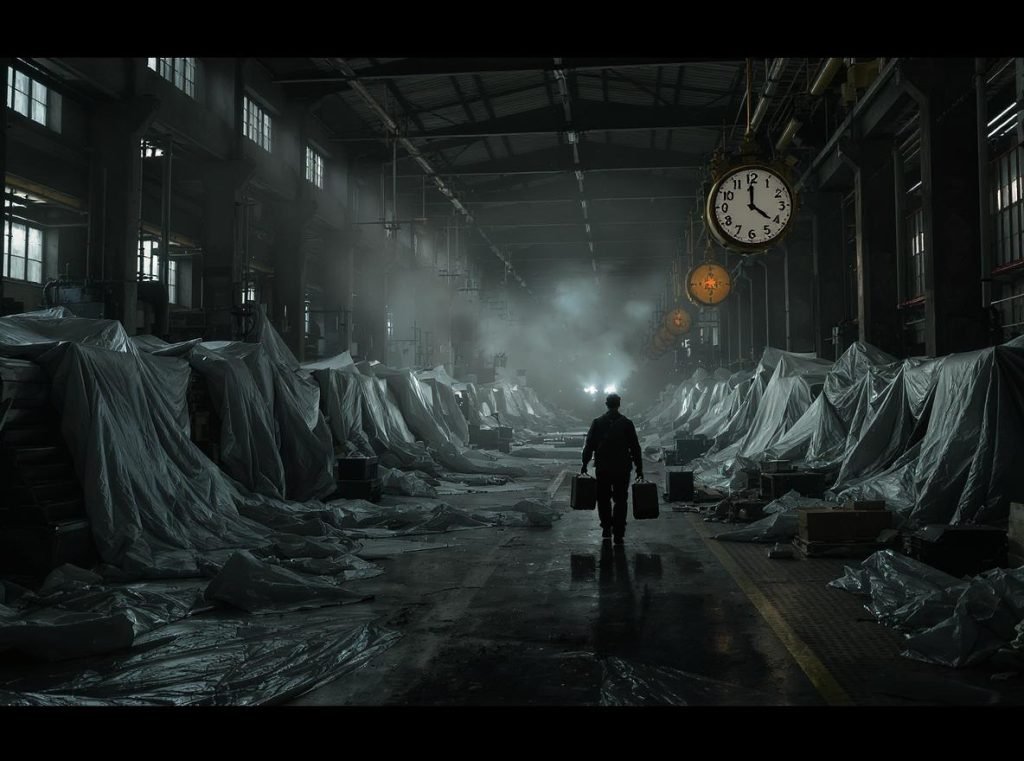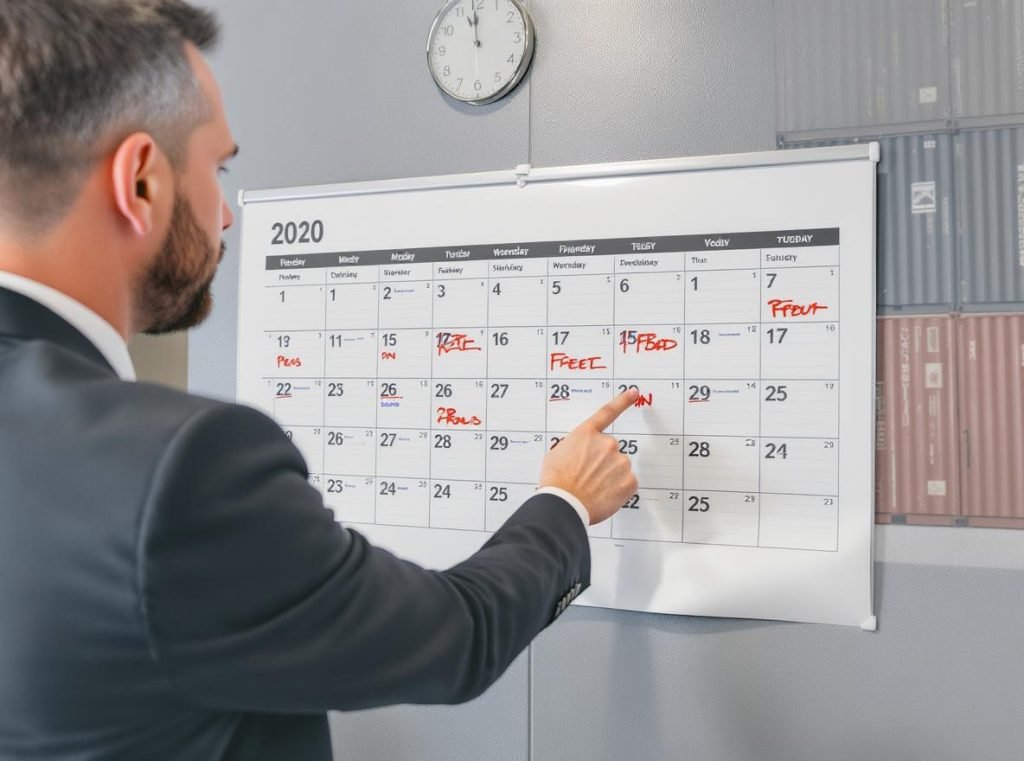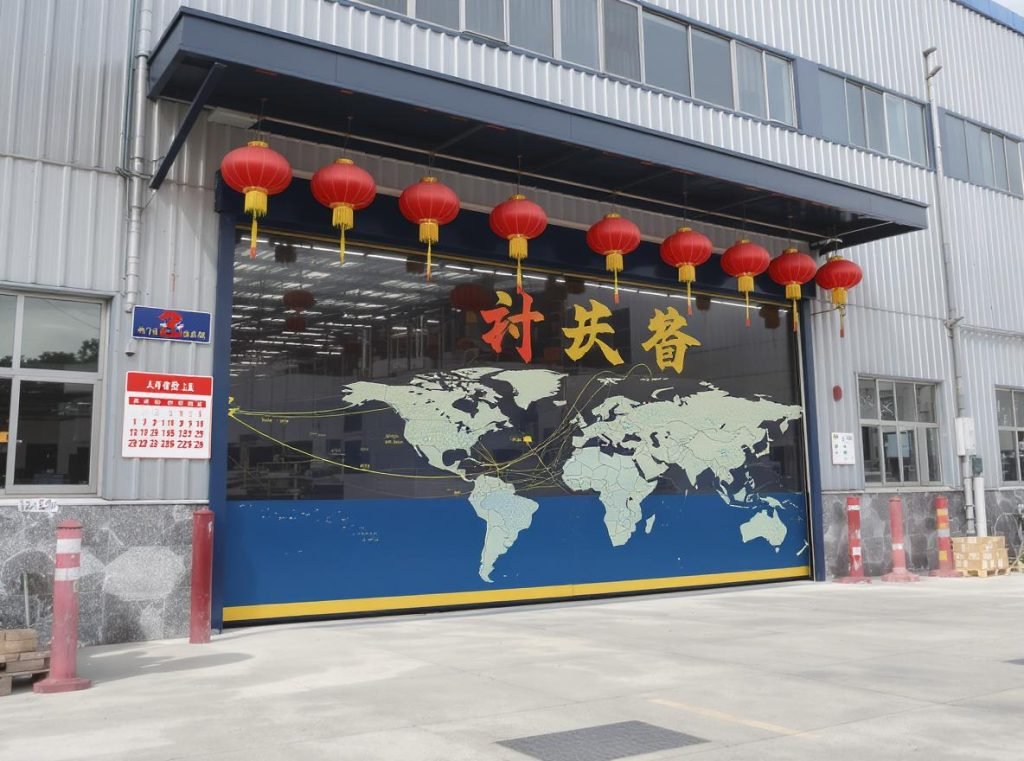Planning your custom packaging orders around Chinese holidays feels like navigating a complex maze. One missed deadline can derail your entire product launch, leaving you scrambling to explain delays to customers while competitors gain market advantage.
Chinese national holidays create production shutdowns ranging from 1-8 days officially, but actual factory closures extend 2-4 weeks during Chinese New Year and 7-14 days during Golden Week. Smart businesses place orders 4-6 weeks before major holidays and maintain 8-12 weeks of safety stock to avoid catastrophic delays.
Understanding these holiday patterns transforms frustrating delays into strategic opportunities for better planning and competitive advantage.
Table of Contents
ToggleWhat Are the Six Major Chinese National Holidays That Impact Production?
Many international buyers underestimate how deeply Chinese holidays affect manufacturing schedules. These aren’t just office closures—entire supply chains pause completely.
China observes six primary national holidays in 2025 that disrupt manufacturing: Chinese New Year (January 28-February 4), Qingming Festival (April 4-6), Labor Day (May 1-5), Dragon Boat Festival (May 31-June 2), and the combined National Day/Mid-Autumn Festival (October 1-8), plus New Year’s Day (January 1).

Complete 2025 Holiday Breakdown
Spring Festival (Chinese New Year) – January 28 to February 4
This 8-day official holiday creates the most devastating production disruption. Every factory in China shuts down completely with no exceptions during this period.
Labor Day Holiday – May 1 to May 5
The 5-day Labor Day break significantly affects shipping schedules and creates moderate production interruptions across all manufacturing sectors.
National Day and Mid-Autumn Festival – October 1 to October 8
This combined 8-day “Golden Week” causes the second-most significant delays in production and shipping after Chinese New Year.
Shorter Holidays with Moderate Impact:
- Qingming Festival (Tomb-Sweeping Day): April 4-6 – 3 days
- Dragon Boat Festival: May 31-June 2 – 3 days
- New Year’s Day: January 1 – 1 day (though some factories extend breaks)
| Holiday | Official Duration | Production Impact Level | Typical Recovery Time |
|---|---|---|---|
| Chinese New Year | 8 days | Severe (Complete shutdown) | 4+ weeks |
| National Day/Mid-Autumn | 8 days | High | 2-3 weeks |
| Labor Day | 5 days | Moderate | 1-2 weeks |
| Qingming/Dragon Boat | 3 days | Low-Moderate | 3-7 days |
How Long Do Chinese Factories Actually Close During Major Holidays?
The official holiday duration tells only part of the story. Real production impacts create far more extensive disruptions than government announcements suggest.
During Chinese New Year, factories close for 2-4 weeks total despite the 8-day official holiday. Workers leave 1-2 weeks early to travel to hometowns, and production takes weeks to return to full capacity as up to one-third of workers may not return to their jobs.

Extended Closure Reality Check
Pre-Holiday Workforce Exodus
Many factory employees depart 1-2 weeks before the official holiday begins. These workers often travel thousands of kilometers to reach rural hometowns, requiring extended travel time.
Complete Communication Blackout
During major holidays, expect zero responses to emails or phone calls. All business communication ceases entirely.
Post-Holiday Recovery Challenges
Production doesn’t resume immediately after holidays end. Critical recovery issues include:
- Worker shortages as employees gradually return
- Up to one-third of factory workers may not return to their jobs
- 4+ weeks required to return to full production capacity
- Quality issues from inexperienced new hires and promoted workers
Golden Week Reality
While National Day officially lasts 7-8 days, actual factory shutdowns often extend to 10-14 days when including weekend buffers and gradual workforce return.
When Should You Place Orders to Avoid Catastrophic Delays?
Strategic timing separates successful importers from those facing supply chain disasters. Last-minute orders during holiday seasons guarantee frustration and costly delays.
Place orders by October-November for Chinese New Year delivery, stop accepting new orders 4-6 weeks before closure, and maintain final shipping deadlines by end of December to early January. For other holidays, book 3-4 weeks advance for ready-made products and 6-8 weeks advance for ocean freight.

Critical Timing Guidelines
Chinese New Year Planning (Most Critical)
The research shows companies should finalize Q1 orders by October of the previous year. This isn’t optional—it’s essential for business continuity.
Strategic Planning Timeline:
- October-November: Final order placement window
- December: Stop accepting new production orders
- Early January: Absolute final shipping deadline
- Late January-February: Complete production halt
Other Holiday Planning
For Golden Week and smaller holidays, follow these proven timelines:
- Ready-made products: 3-4 weeks advance booking
- Custom manufacturing: 4-6 weeks advance planning
- Ocean freight: 6-8 weeks advance booking
- Air freight: 4-7 days advance (though costs increase 25-30%)
How Do Holiday Delays Create Supply Chain Chaos?
Chinese holiday disruptions generate cascading effects throughout global supply chains, creating problems that extend months beyond the actual holidays.
Holiday impacts include pre-holiday freight rate increases of 25-30%, complete production halts during holidays, worker shortages affecting 30% of factory capacity post-holiday, and order backlogs creating extended lead times for months after holidays end.

Three-Phase Supply Chain Impact
Pre-Holiday Rush Effects
The weeks before major holidays create intense supply chain pressure:
Production surge as factories accelerate output to fulfill orders before closure, leading to quality compromises from rushed manufacturing. Port congestion develops as companies race to export goods before shipping stops.
Freight rates spike 25-30% due to overwhelming demand, forcing businesses to choose between expensive shipping or delayed delivery.
During Holiday Disruptions
Complete manufacturing standstill across all Chinese factories. Transportation capacity drops dramatically with reduced logistics operations and port activity.
Zero business communication creates information blackouts lasting weeks. No new orders can be processed or confirmed during these periods.
Post-Holiday Recovery Challenges
Recovery proves more challenging than the holiday itself:
- Accumulated demand creates massive order backlogs
- Inexperienced workforce affects initial quality standards
- 4+ weeks required to return to normal production capacity
- Extended lead times persist for months after holidays
What Proven Strategies Minimize Holiday Disruptions?
Successful international buyers implement comprehensive holiday management systems. These evidence-based approaches reduce stress and maintain business continuity.
Implement early communication by October, maintain 8-12 weeks safety stock for critical items, develop backup suppliers in different regions, and allocate 25-30% additional budget for pre-holiday freight costs. These strategies transform holiday disruptions from crises into manageable business cycles.

Advanced Planning Approaches
Timeline Management Systems
Break production into pre-holiday, holiday, and post-holiday phases. Establish key checkpoints to monitor progress against holiday deadlines.
Critical path analysis identifies bottlenecks and dependencies that could affect delivery timelines before problems become crises.
Inventory Buffer Strategy
Maintain strategic inventory levels that account for extended disruptions:
- 8-12 weeks of safety stock for critical items during Chinese New Year
- 4-6 weeks buffer for Golden Week periods
- 2-3 weeks minimum for smaller holidays
Supply Chain Diversification
- Alternative suppliers: Develop backup suppliers in different regions
- Multi-modal shipping: Use various transportation methods to reduce dependency
- Port diversification: Ship through less congested ports when possible
Financial and Operational Preparations
Holiday Budgeting Requirements
Allocate 25-30% additional budget for pre-holiday freight costs. This isn’t optional expense—it’s essential business continuity investment.
Contract Strategy
Negotiate flexible terms that account for holiday delays. Include force majeure clauses specifically addressing Chinese holiday impacts.
Quality Control Intensification
Increase inspection processes during pre-holiday rush periods when quality compromises become more common due to accelerated production schedules.
How Does Professional Holiday Production Scheduling Work?
Effective holiday production scheduling requires systematic approaches that address the unique challenges of Chinese manufacturing cycles.
Professional scheduling combines phase-based planning, milestone tracking, regular status updates, emergency communication channels, and stakeholder alignment. Successful companies treat Chinese holidays as predictable annual events requiring comprehensive strategic planning throughout the year.

Systematic Scheduling Framework
Phase-Based Production Planning
Divide projects into distinct phases that align with holiday calendars:
- Pre-holiday completion targets
- Holiday period contingency plans
- Post-holiday recovery timelines
Communication Protocol Excellence
Implement weekly progress reports during critical periods leading up to holidays. Maintain alternative communication channels for holiday periods when primary contacts become unavailable.
Stakeholder Alignment Strategy
Ensure all parties understand holiday impacts and contingency plans. This includes internal teams, customers, and supplier networks.
Risk Management Integration
Milestone Tracking Systems
Establish key checkpoints throughout production cycles. These milestones provide early warning signals when projects risk holiday deadline conflicts.
Critical Path Analysis
Identify bottlenecks and dependencies that could affect delivery timelines. Focus resources on critical path elements that cannot absorb holiday delays.
Emergency Response Preparation
Develop contingency plans for holiday-related disruptions including alternative suppliers, expedited shipping options, and customer communication protocols.
How Does Acreet Navigate Complex Holiday Production Challenges?
At Acreet, we’ve mastered the art of holiday production management through years of experience serving international clients. Our systematic approach ensures your custom packaging projects avoid costly holiday disruptions.
We implement proven holiday scheduling frameworks, maintain strategic inventory buffers, provide transparent milestone tracking, and offer alternative production solutions during critical holiday periods. Our proactive approach transforms potential supply chain disasters into smooth business operations.

Our Comprehensive Holiday Management System
Advanced Timeline Planning
Our production managers create detailed schedules incorporating all Chinese holidays 12 months in advance. We share these calendars with clients during initial consultations, ensuring everyone understands critical deadlines.
Proactive Risk Assessment
We evaluate each project’s holiday risk profile and recommend optimal timing strategies. Complex custom packaging projects receive extended lead time recommendations to ensure completion before factory closures.
Strategic Inventory Management
We maintain critical material inventory buffers to minimize holiday impact on your orders. This forward-thinking approach helps us continue production even when supplier networks experience disruptions.
Emergency Response Capabilities
When holiday conflicts arise, our team activates alternative production solutions including expedited processing, alternative material sourcing, and priority shipping arrangements.
Transparent Communication Excellence
- Monthly holiday impact assessments for ongoing projects
- Real-time production updates during critical pre-holiday periods
- Alternative communication channels during holiday blackouts
- Comprehensive recovery timeline communication post-holiday
Summary
Chinese national holidays create significant production timeline impacts, with Chinese New Year causing 2-4 week shutdowns and Golden Week creating 1-2 week disruptions. Smart businesses place orders 4-6 weeks before major holidays, maintain 8-12 weeks safety stock, and budget for 25-30% freight increases. Professional holiday management transforms these predictable disruptions into strategic planning opportunities.

Ready to eliminate holiday production anxiety from your supply chain? Contact Acreet today for a comprehensive consultation on holiday-aware packaging production that keeps your business running smoothly year-round.


